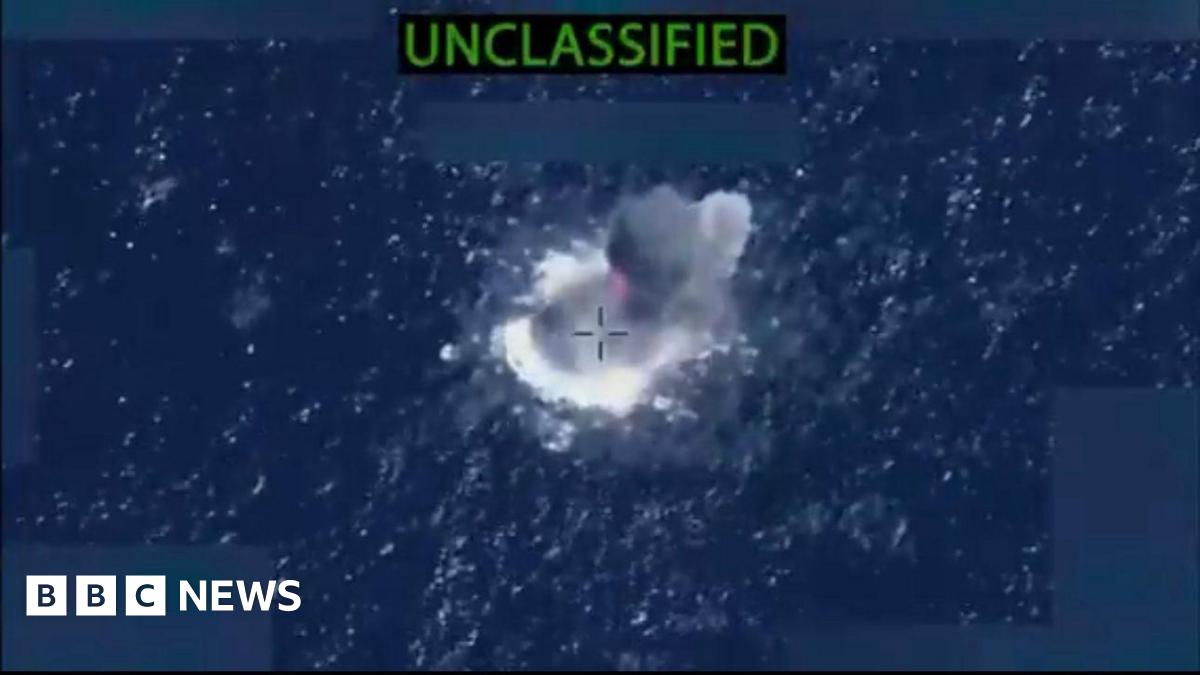At least four of the strikes have so far taken place in the Pacific, which is a far more significant drug-trafficking corridor, with the rest taking place in the Caribbean.
President Trump has said he has the legal authority to continue bombing boats in international waters, but suggested last week that he may seek approval from Congress if the campaign is expanded to include targets on land.
Trump has said he is “totally prepared” to strike land-based targets, which would mark a significant escalation in the campaign.
The strikes, however, have drawn criticism from international law experts and both the Venezuelan and Colombian governments.
In an interview with the BBC’s Newsday programme last week, Colombian Deputy Foreign Minister Mauricio Jaramillo said the strikes were “disproportionate and outside international law”.
Jaramillo said those on the vessels had “no possibility to defend themselves” and were struck with “no process” and “no judicial order”.
The strikes also come as tensions ratchet up with both governments. The US has placed sanctions on Colombian president Gustavo Petro, accusing him of failing to curb drug trafficking and allowing cartels to “flourish”.
In the Caribbean, the US has deployed troops, aircraft and naval vessels and last week ordered the world’s largest warship – the USS Gerald R Ford – to the area.
Trump has accused Venezuelan President Nicolas Maduro of being the leader of a drug-trafficking organisation, which he denies, and there are fears in Venezuela that the US military build-up is aimed at destabilising and toppling Maduro’s government.

